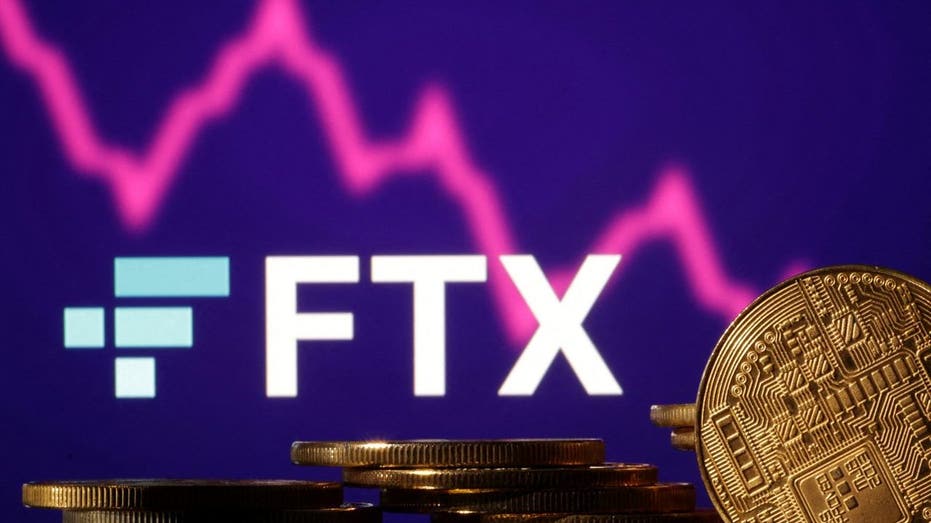BlockFi user explains how FTX collapse cost him $2,500 following crypto lenders’ ‘significant exposure’
BlockFi user's account was frozen after FTX crumbled
FTX fallout: How long will crypto regulation take?
Floating Point Group co-founder Kevin March discusses if cryptocurrencies can prove to be a valid business model after the FTX scandal on 'The Claman Countdown.'
After the collapse of the crypto exchange FTX nearly two weeks ago, it is still unclear how devastating Sam Bankman-Fried's influence will be on the crypto industry.
Ensnared in the fiasco is Steve Snowden who lost upwards of $2,500 in cashback rewards on the crypto-lending platform BlockFi.
"Whenever everything did collapse, they [BlockFi] just froze the account overall. So there was nothing you could pull the money out from. It was just plain as that," the investment adviser representative told Fox News Digital.
"I was very fortunate I transferred a lot of my bitcoin to cold storage where you should be holding it because no keys, no crypto."

Representations of cryptocurrencies are seen in front of displayed FTX logo and decreasing stock graph in this illustration taken Nov. 10, 2022. (Reuters/Dado Ruvic/Illustration/File Photo / Reuters Photos)
The crypto lender made a deal in July where FTX would provide a $400 million revolving credit facility with the option to buy out the company for $240 million. The deal was designed to stabilize BlockFi, which ran into problems as crypto prices plunged and sparked a liquidity crisis among a number of overleveraged firms.
Days after FTX filed for bankruptcy, BlockFi released a statement on its website saying it was unable to conduct normal business and admitted that it had "significant exposure" to FTX and would assess efforts to recover "all obligations owed to BlockFi."
FTX BANKRUPTCY MAY AFFECT A MILLION CREDITORS
"We do have significant exposure to FTX and associated corporate entities that encompasses obligations owed to us by Alameda, assets held at FTX.com, and undrawn amounts from our credit line with FTX.US," BlockFi said in the November update. "While we will continue to work on recovering all obligations owed to BlockFi, we expect that the recovery of the obligations owed to us by FTX will be delayed as FTX works through the bankruptcy process."
In a statement to Fox News Digital, BlockFi said "we are doing the work now to determine the best path forward for our clients."
BlockFi works by allowing its users to use buy, sell and earn crypto through several financial products such as cash-back rewards and crypto-backed loans.
Snowden believes that he is "very fortunate" because he utilized a rewards credit card that gave cashback in bitcoin, which he transferred to cold storage that was protected by cryptocurrency keys.
"I thought to myself, rather than spending that or just using that money for personal things, why not add it to something that I could potentially have a good financial gain from," he said.
FTX bankruptcy a 'disappointing setback' for cryptocurrency industry: Chen Arad
Solidus Labs co-founder Chen Arad joins 'Cavuto: Coast to Coast' to discuss the fallout from the FTX bankruptcy and its impact on the cryptocurrency industry.
The investment adviser also believes that investors have much to learn in the aftermath of the event.
"What we learned from speculative investing, so many people are going to rush in because nobody knew what they were doing. There's the fear of missing out," Snowden said. "And so many of these companies, they ran out of liquidity. The numbers weren't right because everybody was just diving and jumping for the cash. And it exploded."
WILL FTX'S BANKRUPTCY SPILL INTO THE GENERAL ECONOMY LIKE LEHMAN BROTHERS?
"You're really going to see who the true players are. I think this is a really good thing because crypto is going to take off after the serious players are shown through these moments, and people truly understand what due diligence needs to happen with the transparency of the companies," he added. "I think big picture, through a lot of the political allegations and a lot of other rumors, it is more important now than ever for people to really look at where their money's being held."
Steve Forbes shares insight on FTX crypto scandal
Forbes Media Chairman Steve Forbes on President Biden's latest inflation remarks and the FTX collapse on 'Fox Business Tonight.'
Despite the FTX debacle, Snowden has no hard feelings and is still confident in the future of crypto for investors.
"With speculative investments, you are gambling," he said. "[The] same thing can happen in the market where if it's [money] sitting there, and you don't do things timely, and you're not paying attention, it can be taken advantage of."
CLICK HERE TO READ MORE ON FOX BUSINESS
Reuters, the Wall Street Journal's Alexander Gladstone, Vicky Ge Huang and Soma Biswas, Fox Business' Paul Vigna, Denny Jacob, Brad Myers, Ernie Sadashige and Megan Henney contributed to this report.























